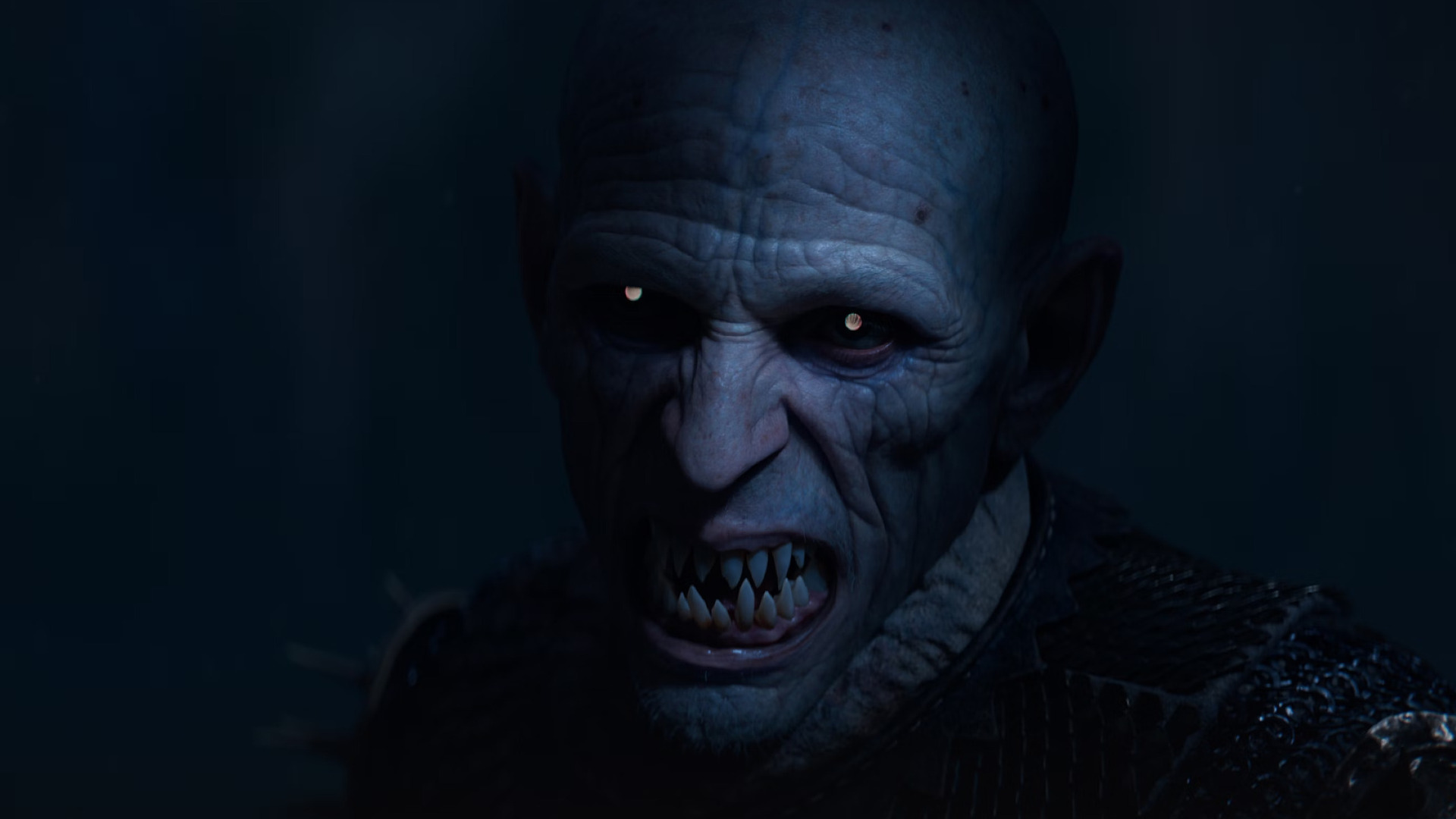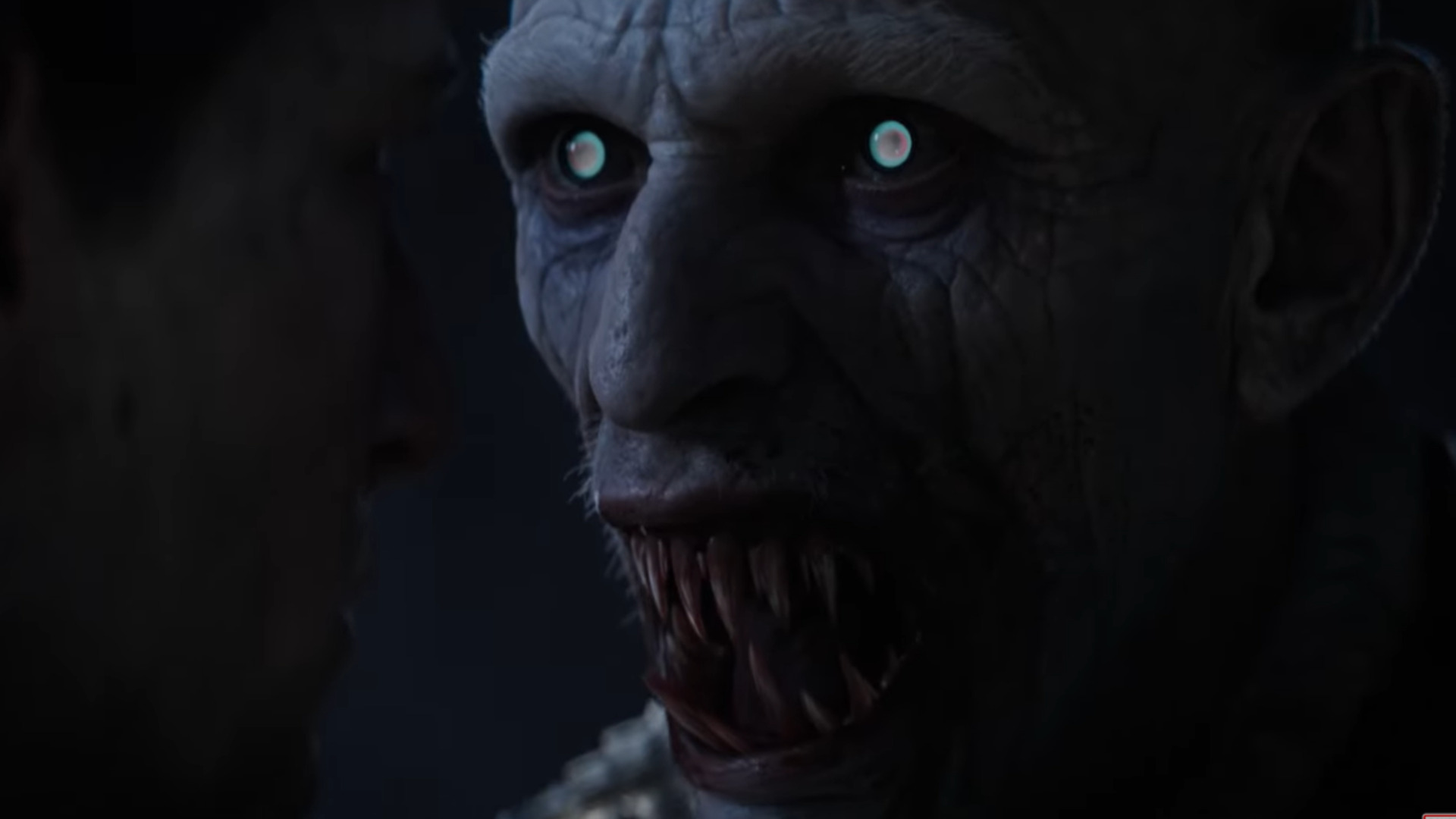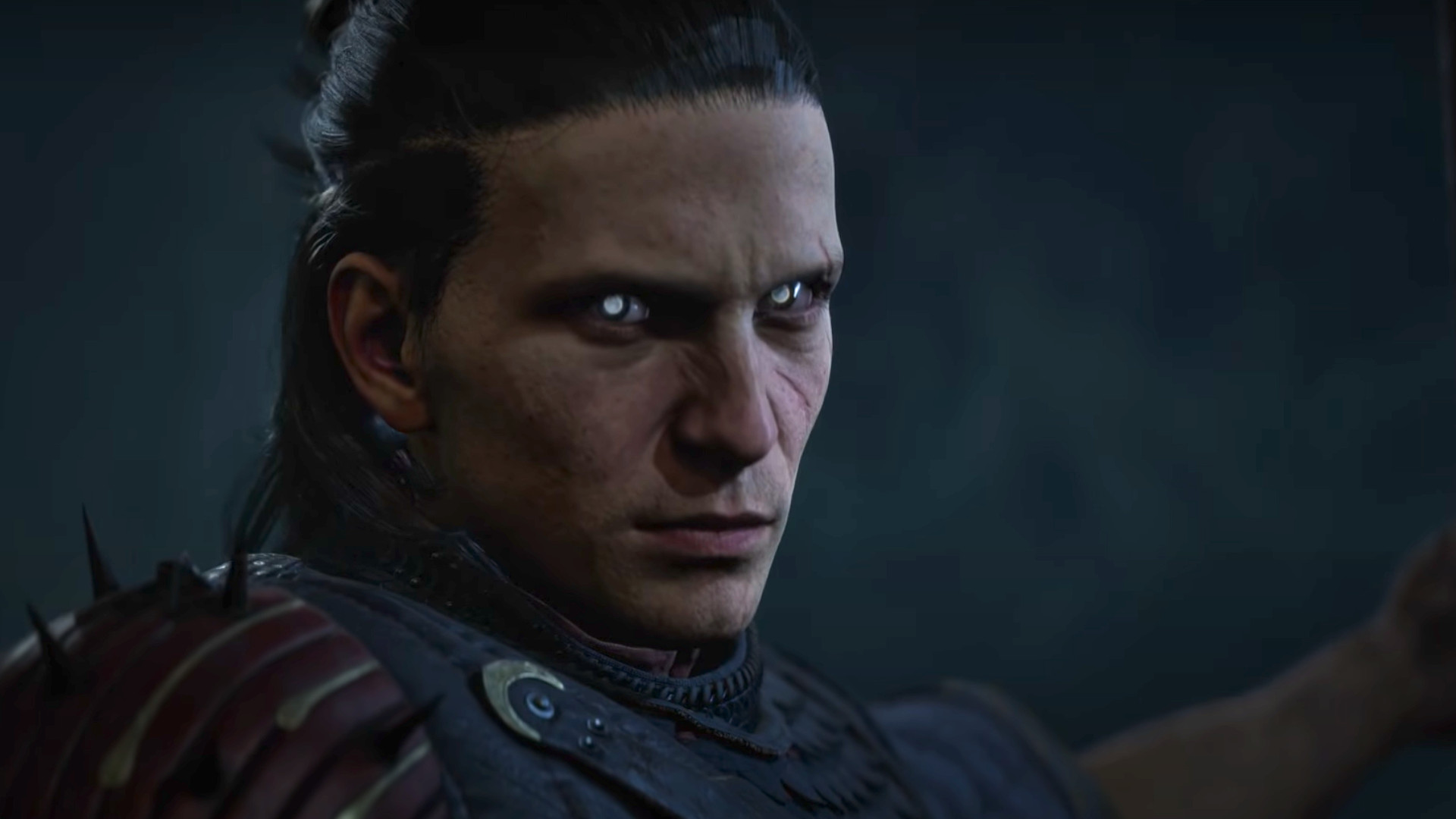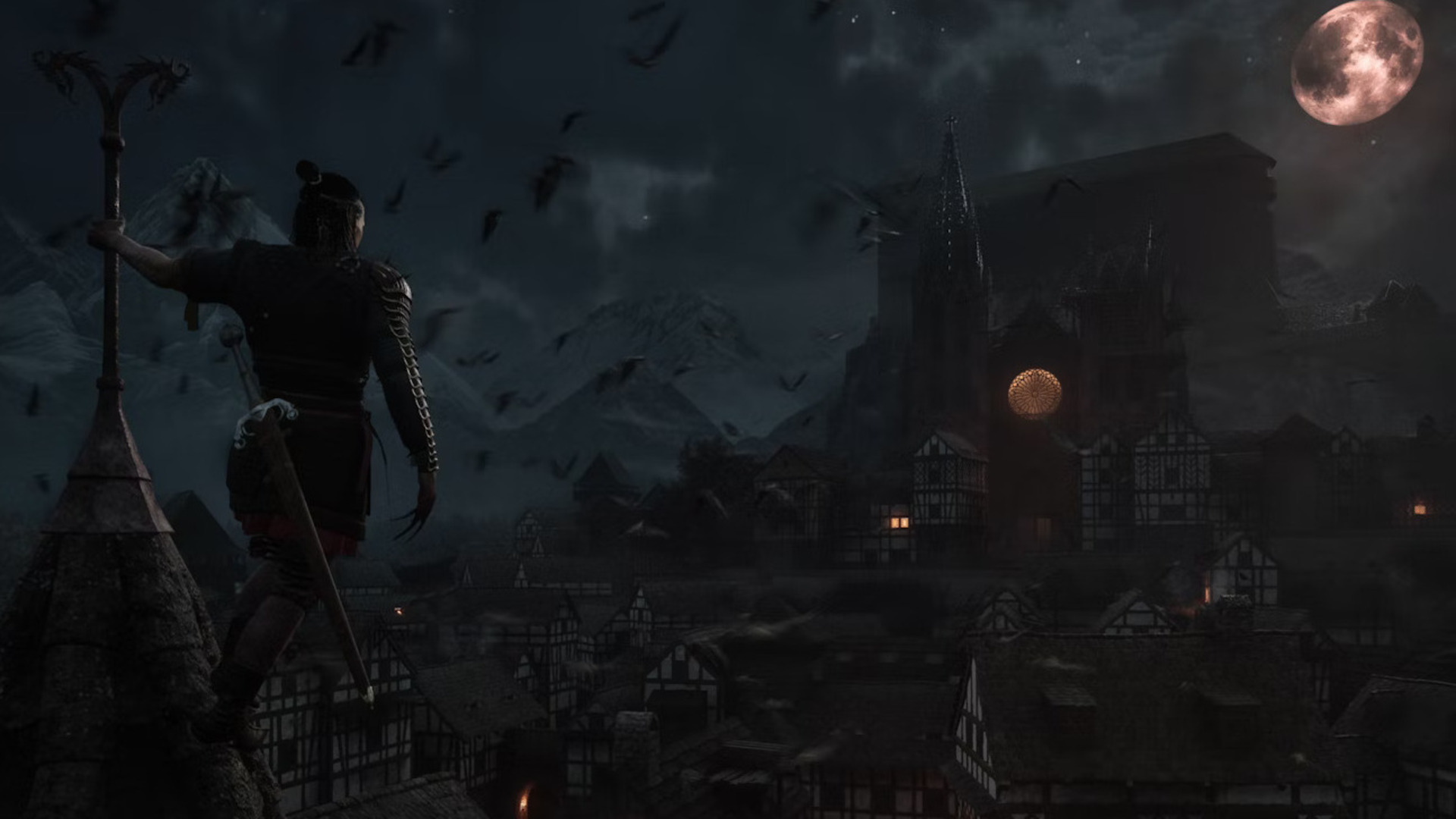Former CDPR lead says "experimental" new open world vampire RPG The Blood of Dawnwalker will "push the genre forward" a lot like The Witcher 3: "The risk is worth the reward"
Exclusive: 10 years after The Witcher 3 broke new ground in open-world game design, Rebel Wolves hopes to do the same with The Blood of Dawnwa

A decade ago, The Witcher 3 broke new ground in open-world game design, and now the team of CD Projekt Red alums at Rebel Wolves is aiming to do the same with the studio's debut release, vampiric dark fantasy RPG The Blood of Dawnwalker.
I sat down with creative director Mateusz Tomaszkiewicz to talk about his ambitions for Dawnwalker and during our wide-ranging conversation, there's a mild but palpable sense of anxiety in the way he talks about the game's much-buzzed-about "time as a resource" mechanic, which moves the in-game clock forward every time you complete a quest. It's far from the first of its kind, with Zelda: Majora's Mask and the Persona games being some of the better-known examples, but Dawnwalker's approach is unique in the open-world RPG space.
Tomaszkiewicz says time-limited quests are "central" to Blood of Dawnwalker's narrative sandbox, pointing to the nocturnal nature of vampires, and "add another layer of non-linearity." Players will consistently be forced to make high-stakes decisions about which content they interact with, creating ripple effects all over the story. The goal here is to "have this natural tension build up and to add weight to your choices." It'll also lend a sense of urgency to quests that you don't usually see in open-world games like, say, The Witcher 3, which lets you put a pin on your mission to save Ciri from her imminent death so that you can enjoy a game of Gwent with your pals. It's an aspect of RPGs we've all come to accept as just a video game thing, but it also might be passively immersion-breaking.
The example Tomaszkiewicz gives me, which isn't necessarily in the game, is this: you come across a burning building with people inside. If you walk away from the building and return later, it'll be a pile of rubble and the people inside will have most likely perished. However, if you're roaming around a different part of the world and don't come across that building, the clock isn't ticking on the burning house. It's still there in another area of the map, but it's not until you interact with it that it's decision time.
"You shouldn't be anxious about missing out on content in different parts of the world, just because we have this time system," he says. "To me personally, that's very important, because I would be very angry if a game did something like this, where I just missed out on a bunch of content I did not know exists."
No half measures

Despite its potential, Tomaszkiewicz sees Dawnwalker's time-limited campaign as the game's biggest risk. He knows the mechanic will be divisive – "hardcore" players will "love this kind of stuff" while "some more casual players will hate it because they will want to just chill and explore at their own pace" – yet he's confident "the risk is worth the reward."
"We heard a lot of these conversations during The Witcher 3 development as well," he says. "I think not many games were trying to do what we did back then. We tried to combine these really expansive storytelling techniques that were usually built in more linear RPGs, like more corridor-structured RPGs, like The Witcher 2, for example. We tried to carry that over to an open world and so on.
Sign up to the GamesRadar+ Newsletter
Weekly digests, tales from the communities you love, and more
"And there was a risk to this as well; there was a risk to having such a long story as we did with The Witcher 3. We didn't know if people actually want this, if that actually fits the play style of an open-world game. But we took these risks. We did what we could to mitigate them. I think, in the end, it worked out pretty well. I'm pretty sure some people did not like it, and they preferred the style of a game like The Witcher 2, or maybe some Bethesda games. And that's totally fine. You won't please everyone, right? If you're trying to make a game for everyone, it's probably for no one. You need to think about, 'what are your core players' and how to satisfy their needs and how to make it fun for them, and also push the genre forward."
Ancient traditions

Speaking of pushing forward, Tomaszkiewicz says you have to be "extremely careful every time" you toy around with longstanding RPG traditions because "sometimes even very mild changes can be extremely controversial."
"They will say that it's not an RPG or that the game is ruined now, even though it's not really a huge change on paper," he adds. "It can be huge for the players."
When it comes to Dawnwalker's time management system, which Tomaszkiewicz returns to frequently in our conversation, Rebel Wolves had to ask itself "what are we gaining if we are trying to change things? Are we just changing them to be different, or are we changing them to actually achieve some goal?"
The goal in this case is to push the RPG envelope in the same way that CDPR did back in 2015 with The Witcher 3, except instead of doing so with a genre-defining story and world, Dawnwalker aims to make a splash by tinkering with RPG DNA, which seems risky indeed.
"The thing we are doing is, I would say, very experimental, because even though I saw some games experimenting with time, like Pentiment, for example, these games are a bit different. They're not open world RPGs, and trying to combine it with an open world RPG, I think is novel. So of course, we sat down. We were talking about 'what would we achieve by having this? What are the risks?' And, you know, we're trying to consciously tackle both."
Although Tomaszkiewicz admits Dawnwalker is a much smaller game than The Witcher 3, with the goal being a roughly 30-40 hour main quest, he's hoping to repeat its success of taking the RPG sandbox to new heights while remaining as approachable as possible.
Risk management

One of the ways Rebel Wolves is trying to "mitigate risks" is by making all time-limited quests, meaning quests that move the in-game clock forward, separate from the sandbox experience. Basically, if you're out roaming the open world, grinding, and gathering loot, time won't move forward; it's only when you initiate a quest that clearly telegraphed "units" of time will be spent, with smaller quests using up a smaller share of your pre-determined pool. Ideally, that'll minimize stress and the feeling that you're "missing out" on content, which of course will be available in subsequent playthroughs.
"Our way [of addressing that] is giving you as much control over this time as a resource," says Tomaszkiewicz."The whole idea of time as a resource is kind of a way to tackle it, like abandoning real time.Time flow is the first step in that direction, turning time into a resource you get to spend as you wish, instead just flowing, and then telegraphing clearly which activities will make you spend the time. So, basically, making you feel safe, that you have control and agency in there."
My main takeaway from all of this is that Dawnwalker's time management system isn't just a feature of the game; it's the elevator pitch. It's the whole thing. The limited time quests aren't built around Dawnwalker, it's the other way around. If it sticks the landing, I genuinely think it could live up to Rebel Wolves' aspirations, but if it fails, the whole game sinks with it. Tomaszkiewicz seems keenly aware of that, and he's almost single-minded in communicating what the time management system is and isn't.
"There are no hidden tricks and traps, and we won't push you into situations with no return where you weren't warned that you would spend time there. This is a big one for me, and of course, it is a lot of work because it is a very, very complicated jigsaw to make very narrative driven, interesting quests and make that mechanic work. We don't do gimmicks with it."
Tomaszkiewicz and his brother Konrad have assembled a team of veteran developers under Rebel Wolves, but they're treading uncharted water with Dawnwalker, and without the financial backing and girth of talent of a studio like CDPR, which employs more than 1,000 people as of 2025 (Tomaszkiewicz tells me Rebel Wolves has "around 120" employees by comparison.) I have little doubt that, at the very least, Blood of Dawnwalker will be a cool and interesting game that's entirely my vibe, but it's far too early to tell whether it'll be a generational RPG like The Witcher 3.
This interview has been lightly edited for clarity.
After scoring a degree in English from ASU, I worked as a copy editor while freelancing for places like SFX Magazine, Screen Rant, Game Revolution, and MMORPG on the side. Now, as GamesRadar's west coast Staff Writer, I'm responsible for managing the site's western regional executive branch, AKA my apartment, and writing about whatever horror game I'm too afraid to finish.



